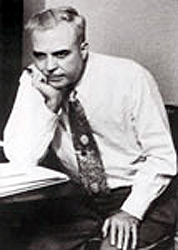
Hypnosis is not well understood by many people who still have the idea that there is something mysterious about it, that it is some kind of truth serum, or lie-detector, black magic, or that people would be forced to do things they wouldn’t do consciously. Like Woody Allen in “The Jade Scorpion”. None of these is true.
Stage hypnotists are very skilled in finding people who are highly suggestible, and use them as demonstration subjects. In traditional hypnosis people can be tested for their “suggestibility.” “Highly hypnotizables” are very suggestible. People who are not as suggestible who can still use therapeutic hypnosis because the new review of hypnosis defined by Milton Erickson is that hypnosis is a natural experience that everyone has every day. And then when we are in that state of highly focused attention or natural absorption we can hear or use suggestion in a more efficient and effective way. That is why it is so valuable in psychotherapy.
In the new reviews of hypnosis, the hypnotist facilitates the inner healer with each person and speaks with it. All hypnosis is self-hypnosis.
Research has shown that hypnosis has had many successful medical results in areas such as pain control, pre- and post- surgery, and chronic medical conditions such as IBS (Irritable Bowel Syndrome). An expanding body of research continues to validate the use of hypnosis in many medical areas.
Milton Erickson redefined hypnosis as a natural everyday experience everyone has. He said, “Anything you can do consciously you can do better in a trance state.” We all daydream, we all can shift into states of fantasy listening to music. Certainly the television can hypnotize people as many parents know when they try to get the kids to turn off the TV and come to dinner.
Erickson said that when people go into this state of highly focused attention they can integrate suggestions at deeper levels. This process is called imprinting. Many people can carry out the imprinted suggestions when they move into a conscious state. There is the Freudian unconscious, which analysts analyze as part of the underground of mind and memory which people are not consciously aware of. Erickson’s idea of hypnosis was that it accessed a vast experiential treasure chest of memories, thoughts and feelings which can be used as a basis for achievement, enrichment, creativity and the enhancement of the pleasure’s in life. He told his students, “Discover their patterns of happiness. Many of the “new positive therapies” are derived from his work.
Click here to learn more about Dr. Erickson.
For more information you can also refer to the Frequently Asked Questions about my book, Loving in the Here and Now as they also also answer many questions you may have in general about hypnosis.
